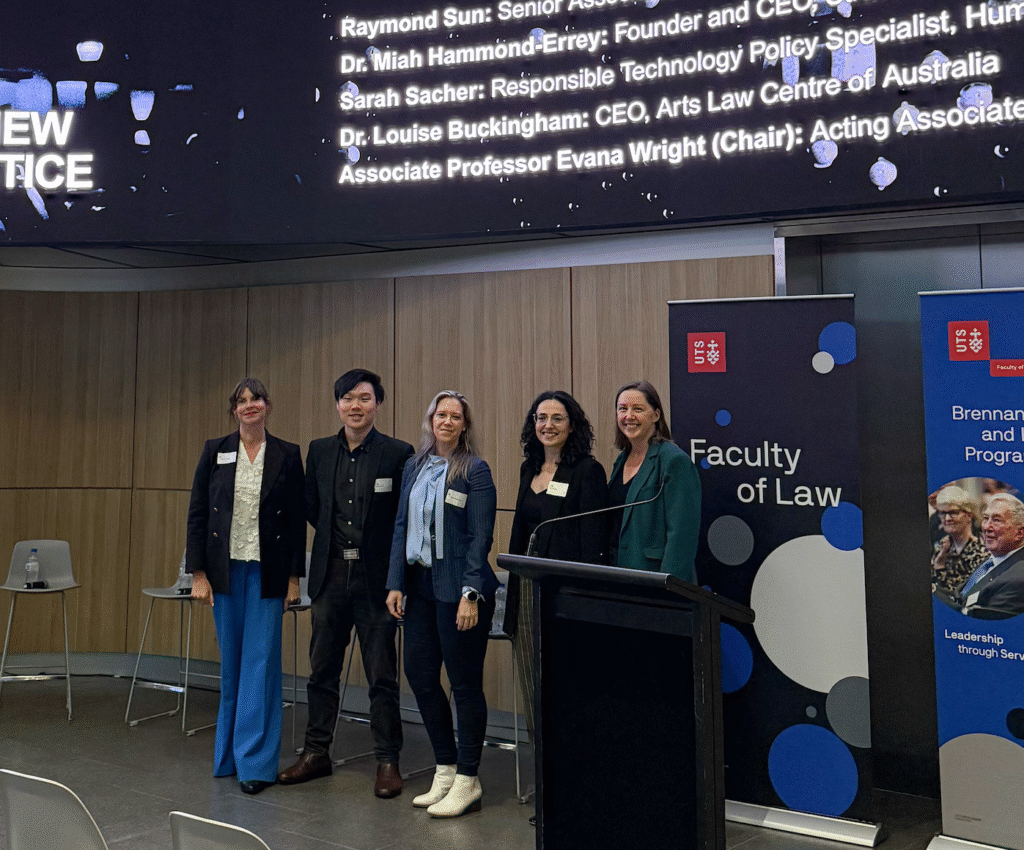Can Australia be courageous in regulation of new technology while navigating international uncertainty and constant change?

On 11 September, Arts Law was pleased to be asked by a brilliant team from the UTS Law Faculty to join expert panellists Raymond Sun, Miah Hammond-Errey and Sophie Farthing to discuss how recent international policy upheaval could shape Australian responses to regulation of new technologies, including artificial intelligence. Led by Genevieve Wilkinson, along with Maxine Evers, Jane Hogan (and Evana Wright facilitating beautifully on the night!), the team from UTS asked the panel: can Australia be courageous in regulation of new technology while navigating international uncertainty and constant change?
The panel was tasked with tackling critical concerns including rights to privacy, cybersecurity and the growing digital divide for vulnerable populations (as well as Louise’s Arts Law focus on the impacts of generative AI on artists and undermining and eroding of legal mechanisms available to them to generate income/livelihoods and respectful treatment of works, highlighting in particular the vulnerability of ‘works in the style of’ First Nations’ peoples’ traditional art (recent ABC coverage highlights the issues).
The UTS team were really interested in the different perspectives that the panel embodied, as lawyers, technologists, government advisors, not for profit leaders and human rights advocates.
Buoyed by terrific audience participation and curly questions, the panel explored the international developments in tech law and policy that are impacting and influencing the Australian regulatory response to new and emerging technologies such as AI. The panel reflected on what the domestic regulatory settings need to be to ensure Australia develops and adopts new technology in a way that promotes social justice, protects human rights, doesn’t result in discrimination or inequality, and doesn’t disproportionately benefit a small minority.

